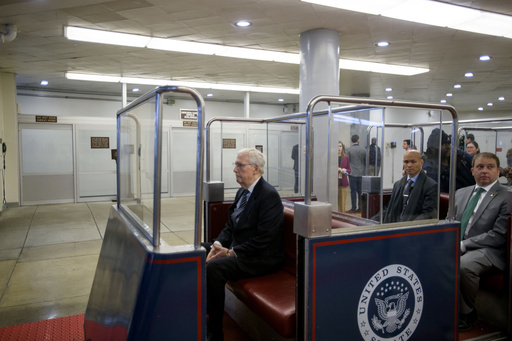WASHINGTON — Senator Mitch McConnell, who has recently relinquished his leadership role, has begun to express his opinions more candidly regarding President Donald Trump’s Cabinet nominees, often standing alone in his opposition among fellow Republicans. His dissenting votes have raised eyebrows as he takes on a more independent stance in the new administration.
Regarding Pete Hegseth, the new Secretary of Defense, who has been accused of excessive drinking and inappropriate behavior towards women, McConnell stated that Hegseth had “failed, as yet, to demonstrate” his readiness for the position, emphasizing that a desire for change is insufficient for such a critical role.
He also criticized Tulsi Gabbard, the recently appointed director of national intelligence, noting her “history of alarming lapses in judgment,” particularly concerning her views about foreign relations with Russia and China, as well as her stance on the security breach involving former contractor Edward Snowden.
Additionally, during the confirmation of Robert F. Kennedy Jr. to head the Department of Health and Human Services, McConnell voiced his opposition, stating that Kennedy’s history of promoting dangerous conspiracy theories and undermining public health organizations should disqualify him from leading such an important department.
This recent shift in McConnell’s approach illustrates a significant change three weeks into Trump’s presidency, as he transitions from being the Senate GOP leader to an ordinary senator among his peers. His actions reveal both the capabilities and the limitations of his influence in the Senate, where he had held a considerable presence for nearly four decades.
While he is not completely dismissive of Trump’s agenda and has supported some nominees, his votes against Hegseth, Gabbard, and Kennedy bring attention to the leader he hopes to be now that he is outside the high ranks of Senate leadership. The lack of widespread support from his fellow Republicans highlights the shift in his political power; few joined him in dissent, leaving him isolated and often in alignment with the Democrats.
“McConnell’s votes on these nominations indicate that he now feels more free to align with his personal beliefs than he did when he was expected to represent his party as a cohesive unit,” noted a political expert from Princeton. Only a couple of other Republican senators echoed his sentiments, with Senators Lisa Murkowski and Susan Collins joining him in opposing Hegseth’s nomination.
With McConnell stepping back from leadership, he now has the liberty to express his judgment without being bound to party unity. Following these votes, Trump issued a critique of McConnell, branding him “bitter” and questioning his mental fitness during a rant in the Oval Office after Kennedy’s confirmation.
“I feel sorry for Mitch,” Trump remarked, indicating his frustration with McConnell being increasingly opposed to his initiatives, contrasting their collaboration during Trump’s first term. Their partnership facilitated legislative achievements like the 2017 tax cuts, but it was marred by conflict, especially during the fallout from the 2020 election. While McConnell condemned Trump’s role in the January 6 insurrection, he ultimately backed Trump’s reelection push.
The differences seem to signify a shift beyond what Trump understands, especially regarding McConnell’s battle with childhood polio. “He’s lost his power,” Trump said dismissively, failing to recognize the complexities of McConnell’s current situation.
McConnell has committed to completing his Senate term through the 2026 elections after resigning from his leadership position. However, speculation remains about whether he will seek another term. Despite these challenges, McConnell retains influential positions, including chairing the Rules Committee and the appropriations subcommittee on defense, where he seeks to assert his influence on military and defense policies.
“I expect to support the administration’s initiatives for the most part,” he confirmed in a recent interview, maintaining a level of alignment despite his dissent on key nominees.
The senator continues to deal with the long-term effects of polio, sometimes relying on a wheelchair, particularly after recent falls on Senate steps. His setbacks have been noted by peers, leading Senators like Richard Blumenthal to affirm that McConnell appears more liberated in his voting, suggesting he is driven by his own conscience rather than party pressure.
As other Republicans seem hesitant due to fears over Trump’s influence, McConnell is perceived as demonstrating moral courage. New Senator Bernie Moreno from Ohio praised his ability to prioritize personal convictions over party loyalty.
Criticism has emerged from within Kentucky as well, with local businessman Nate Morris considering a challenge for McConnell’s seat in 2026, claiming McConnell has betrayed Trump. Morris’s statements reflect the divided sentiment regarding McConnell’s recent decisions and may pose new challenges as he moves forward in the evolving political landscape.




